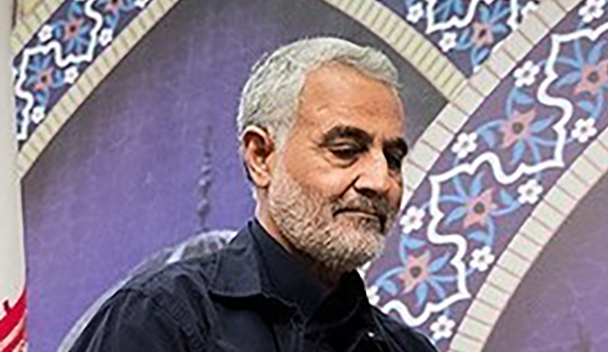A successful strategy, in diplomacy and war alike, rests on the judicious balancing of ends and means in pursuit of defined objectives. This invariably entails altering the behavior of the adversary in a manner which will make the attainment of those objectives more likely. It is unclear whether and in what way the killing of General Qassem Soleimani will make Iran’s behavior more amenable to United States interests, however defined.
The legality of the deed is moot, but that is not the point. Powers great and small commit all sorts of more or less illegal acts in pursuit of their interests, and their primary concern is whether they can get away with it. Routine violations of international norms and rules are more common among the major global players today, in fact, than at any time between the 1815 Congress of Vienna and the 1914 July crisis. Most jurists trained in the tradition of Hugo Grotius and his illustrious heirs would agree that killing Soleimani was a murder, but many others would respond that the IRGC commander’s acts have placed him beyond the pale.
The issue of legality, legitimacy, and morality of the drone action at Baghdad’s airport can be debated at length among reasonable people, but it is as irrelevant to the global Hobbesian scene as the question whether Britain was guilty of sinking the Lusitania for deliberately planting munitions in its cargo hold, or whether the Maine exploded because of a faulty boiler.
Even if killing Soleimani was a crime, tant pis! The significant question is whether it was a mistake. It probably was, for three reasons.
One, it reduces Iran’s maneuvering space just as the regime in Tehran was showing signs of fatigue and willingness to talk seriously about serious issues. The sanctions are biting, and the political leadership was aware that any escalation would play right into the hands of those who would just love to see America “reengaged” in the Middle East. It is therefore by no means certain that Soleimani was plotting a major action against American interests at the time of his death, as alleged. His plans as they developed until a week ago will remain a known unknown, but there is no evidence that they justified the risk of major escalation.
Two, it creates a new sanctified martyr—not just for the Persians and their Shi’ite coreligionists in the Arab world, but for the Muslim Ummah as a whole. Only the Great Satan—murderously unleashed, as it seems—has the ability to bridge the intra-Muslim schism. That plays right into the hands of those in the Islamic world who long for the apocalyptic day of reckoning between the Dar al-Islam and the infidel Dar al-Harb; and those in the Western world and the Middle East who want the U.S. to fight Iran on behalf of Israel and Saudi Arabia. Let it be added that Soleimani was not nearly as important as the media and talking heads would have us believe. He was a field operative, effective but by no means indispensable. He was not a strategic decision-maker.
Three, it encourages the neocon-neolib joint criminal conspiracy to renew the campaign for war which seemed stalled after the moment of acute crisis late in the summer of last year. The jug goes to the well until it breaks. We’ve been here before, and the disaster was averted, but with each new episode the odds of uncontrollable escalation are increasingly favoring the monsters and idiots who want another Middle Eastern war. The best outcome of the affair would be for the U.S. to accept the lawful decision of Iraq’s elected representatives and withdraw all U.S. forces from Mesopotamia.
We don’t know what will happen next, not only because we don’t know what the U.S. strategy is—provided there is one—but also because we don’t have even a hint of what is deliberated behind Sayyid Ali Hosseini Khamenei’s doors. The media talking heads who pretend to know are lying. My prediction, admittedly intuitive rather than empirical, is that Iran will retaliate indirectly and cautiously and that President Trump will have had second thoughts about what may have been an impulsive decision. In other words, the jug will stay whole one more time. It’s a nerve-wracking business, though, and no way for a responsible power to conduct foreign policy.

Leave a Reply